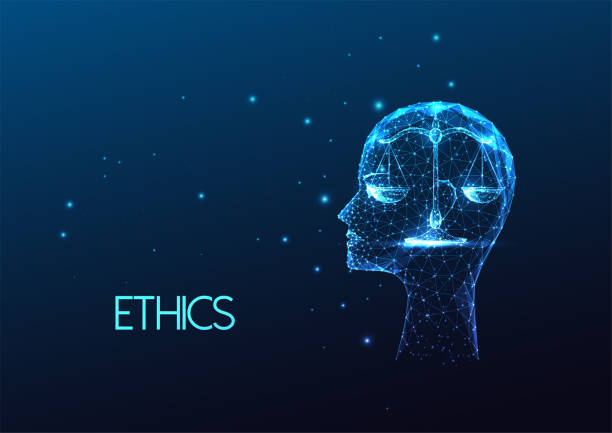
Scholarly publishing is the bedrock of academic discourse, facilitating the dissemination of knowledge, innovation, and groundbreaking research. However, maintaining the highest ethical standards in this field is imperative to safeguard the integrity of academic work.
This blog post delves into the multifaceted realm of ethics in scholarly publishing, examining issues like plagiarism, authorship disputes, conflicts of interest, and the crucial role of editorial boards in upholding publishing integrity.

Plagiarism: The Unforgivable Sin
Plagiarism is arguably one of the gravest ethical transgressions in academic publishing. It involves presenting someone else's ideas, words, or research as one's own, undermining the principles of originality and intellectual honesty. The consequences of plagiarism can be severe, ranging from professional embarrassment to career-ending repercussions. To combat plagiarism, publishers employ sophisticated plagiarism detection tools, and peer reviewers play a vital role in flagging suspected cases.
Authorship Disputes: Who Deserves Credit?
Authorship disputes are common ethical dilemmas, especially in multidisciplinary research. Determining who deserves authorship credit can be complex and contentious. Established guidelines, like those from the International Committee of Medical Journal Editors (ICMJE), recommend that authors must have made significant contributions to the research and be able to defend its accuracy and integrity. Transparency, communication, and adherence to authorship criteria are key to resolving these disputes ethically.
Conflicts of Interest: Full Disclosure Required
Conflicts of interest can compromise the objectivity and impartiality of scholarly publishing. Authors, peer reviewers, and editors should disclose any financial, personal, or professional interests that could influence their work. Editorial boards play a critical role in identifying and managing conflicts of interest, ensuring that decisions regarding publication are made solely based on merit.
Ethical Considerations for Editorial Boards
Editorial boards serve as gatekeepers of scholarly integrity. They make crucial decisions on manuscript acceptance, peer review processes, and ethical matters. These responsibilities demand a high level of ethical commitment:
- Fair Peer Review: Editorial boards must ensure unbiased, constructive, and confidential peer reviews. They should prevent reviewer bias and strive for inclusivity in selecting reviewers.
- Transparent Decision-Making: The rationale behind acceptance or rejection decisions should be transparent, based on the manuscript's quality and relevance, rather than external pressures.
- Avoiding Conflicts of Interest: Editorial board members must recuse themselves from decisions involving manuscripts where they have a personal or financial interest.
- Handling Ethical Violations: When ethical issues arise, editorial boards should conduct thorough investigations, implement corrective actions, and communicate transparently with stakeholders.
- Plagiarism Detection: Utilizing plagiarism detection software is essential to identify potential cases and take appropriate action.

Predatory Publishing: A Threat to Ethics
The rise of predatory publishers poses a significant threat to ethical scholarly publishing. These unscrupulous entities exploit the author-pays model, publishing low-quality or non-peer-reviewed content while charging exorbitant fees. Scholars must exercise caution, vetting publishers and journals rigorously to avoid falling victim to predatory practices.
Ethical Oversight and Compliance
Ethical considerations in scholarly publishing go beyond individual actions. Academic institutions, funding bodies, and professional organizations must establish and enforce ethical standards. They should provide education and resources to help researchers and publishing professionals navigate complex ethical dilemmas.
Open Access and Ethics
The open-access movement, while commendable for democratizing access to knowledge, also presents ethical challenges. Sustainability, quality control, and financial transparency are crucial aspects that need careful attention in open-access publishing.
Final Thoughts
Ethics in scholarly publishing is not an abstract concept but a fundamental pillar that upholds the integrity and credibility of the academic community. Addressing issues like plagiarism, authorship disputes, conflicts of interest, and ethical considerations for editorial boards requires diligence, transparency, and a collective commitment to ethical conduct.
Researchers, authors, peer reviewers, editors, and publishers all play vital roles in ensuring that the dissemination of knowledge remains a noble pursuit characterized by integrity and transparency. By adhering to ethical principles, we can maintain the trust of the academic community and the broader public, ensuring that scholarly publishing continues to be a beacon of knowledge, innovation, and ethical conduct in an ever-evolving world.

About eContent Pro
eContent Pro offers high-quality end-to-end editorial and publishing services, ensuring seamless workflows through the eContent Pro Business Enterprise Management System (BEMS), fast turnaround times, competitive pricing, and exceptional customer service. Since 1994, we have supported commercial publishers, university/library presses, organizations, and societies by streamlining their publishing workflow with innovative publishing solutions.